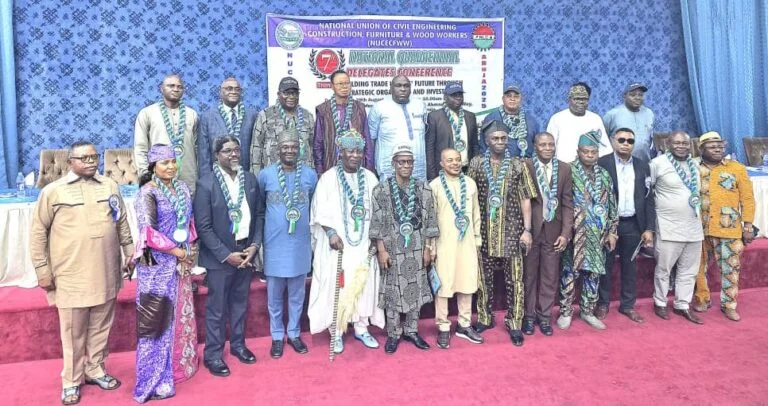He added that the unions must invest in schemes, and partner with government and private sector on workforce development
“My Ministry is committed to supporting unions through policy reforms, capacity-building programs, and access to labour market data.
“We are also working to strengthen the Labour Market Information System (LMIS) to help unions plan more effectively amongst other lofty initiatives.
” Let me also reaffirm the Federal Government’s commitment to social dialogue and inclusive development in our industrial relations space.
” We recognise trade unions as strategic partners in achieving decent work, industrial peace, and economic resilience. Our collaboration must be rooted in mutual respect, transparency, and shared purpose,” he said
Dingyadi said that the government would continue to engage with unions on key issues such as the review of outdated labour laws, implementation of occupational safety standards, promotion of gender equity and youth employment and support for union-led investment initiatives.
He, therefore, commended NUCECFWW as an active participant and watchdog role in negotiating fair wages and safe working conditions for workers ensuring compliance with labour laws and occupational safety standards.
The President of Nigeria Labour Congress(NLC),Joe Ajaero, stressed the need to build stronger unions through strategic organising and investment to expand the shrinking operational space for trade unions to avoid becoming victims.
“The road is not smooth and the one ahead even rougher.
“We must not be deterred for history has never given the working-class victories without struggles.
“The future will not be handed to us as Comrades, we must build it with our own heads and hands.
“In the midst of the present economic hardship, we must take action to save ourselves from hunger and starvation,” he said
Also speaking, the President of NUCECFWW,Stephen Okoro,said that in the last four years Nigeria’s economic history has been turbulent and critical for employers and employees.
Okoro explained that the twin economic policies on the fuel subsidy withdrawal and floating of the naira have led to massive devaluation of naira and excruciating inflation rate.
“It also led to closure of some existing industries ,loss of jobs and unbearable hunger across the land;why do we go from here?
“The theme of this conference became expedient based on the dangers industrial unions are facing when it comes to building trade union’s future in these hard times,” he said.
Okoro urged trade unions to build sustainable financial models to support their operations and invest in education, training for members and establishment of union owned ventures.



